In today’s episode, we get to listen again to Joe and Sam’s conversation about joining WordPress. They discuss Sam’s stories during his firefighter days, how he stumbled upon WordPress and coding, and his approach on how he successfully managed his time to build his own business.
Sam Smith is a retired Firefighter/Paramedic, an Orlando WordCamp Organizer, and a Web Developer.
What to Listen For:
- 00:00 Intro
- 01:18 Welcome to the pod, Sam!
- 03:16 From a firefighter paramedic to a WordPress developer
- 05:50 Stories of injuries while at work
- 09:17 Taking little bits per day to successfully launch a business
- 17:24 Build on relationships and have real friends in the industry
- 24:59 What’s it like to organize a WordCamp?
- 28:23 Getting a jump on blog impressions
- 30:19 The Martian
- 33:59 Find Sam online
Episode Resources:
- Sam Smith is on Twitter, Instagram, and WordPress.org
- Leave an Apple podcast review or binge-watch past episodes
- Visit the WPMRR Community
Podcast Transcript:
Joe Howard: Hey, Hey, WordPress people. Welcome back to the WP MRR WordPress podcast. I’m Joe and
Sam Smith: I am Boba
Joe Howard: Fett and you’re listening to the WordPress business podcast, Boba Fett awesome character from the star wars franchise. One of my favorites kind of funny that I actually offer recording. This is our second time recording.
And the first time I screwed up. May actually went off the whole wrong character. We know about what that is crazy. Anyway, Boba Fett, one of the best, most bad-ass characters in the star wars franchise, what’s going on Bubba
Sam Smith: much, uh, refraining from disintegrating, anybody because a Darth Vader has banded that for the foreseeable future.
But once I give him Han solo, I will go back to disintegrating
Joe Howard: to my, well, yeah, there you go. You’ve got hon frozen, hopefully. So hopefully he won’t put up too much. Too much of a fight. He’s got that carbonate around him, but cool. Boba Fett. Great. And again, one of the most bad ass characters, you’re, you’re pretty bad ass too.
So I think, I think there’s an equivalent. They’re not actually bubbled FET or actually, you know, maybe you could be Boba with, I don’t know, got that helmet on. Never know we’ve got, we’ve got Sam Smith on the podcast this week. One of my favorite WordPress people. Sam, why don’t you tell people a little bit about yourself, a little bit about your history with WordPress.
Sam Smith: Um, so I am kind of a newcomer to WordPress only been doing this about two and a half years. I will say two and a half years ago, I typed into a Google search bar. What is WordPress?
Joe Howard: And we’ve all been in
Sam Smith: it since then. I’ve just been a hook line and singer I, uh, changed careers and, you know, doing this full-time.
And then, I launched my own freelance WordPress company. I’m doing custom development stuff and building sites and all that good stuff.
Joe Howard: Yeah, for sure. I’m actually glad that you, uh, you said at some point you looked up what is WordPress? We actually just published an article on WP buffs blog that focuses on that keyword in search results.
What is WordPress? So I’m glad we have some real data on at least one person act, you know, it’s not just, oh, this many people we saw doing some keyword research. This many people search this, we actually have. Now I’m talking to someone who actually searched that. So very cool. Yeah, man. And so you’re two and a half years or so into WordPress.
We’ve hung out a bunch of word camps and stuff. So we’re buds at this point. Yeah. Yeah. Heck yeah. Let’s why don’t you tell people also like previous, like what have your two and a half years, what have you been doing and WordPress for the, for the past two and a half years, you just kind of now going off doing some more freelance work.
Um, so if anybody has any projects we’re working on, they need a bad-ass developer to come in and help. We got Sam right here, but uh, what else have you been doing the.
Sam Smith: Just kind of go into word camps. Um, oh, and let me clarify the question, what am I doing in WordPress now? Or how did I kind of do that sort of transition into
Joe Howard: it?
Yeah, let’s talk about that. That, that, this is super interesting to me because the first time we met at a word camp, I think it was probably the first time I kind of heard about what you were doing before you jumped into WordPress. And it was like, whoa, I don’t really hear that kind of, uh, that kind of history from most people, but yeah, you just had a story come out and hero press about this but why don’t you tell people who may not have read that hero?
Press.
Sam Smith: Heck. Yeah. And the thing is with those here, press articles. It was like, I was trying to condense it all into like 2000 words. And I was like, man, if, if I just like, didn’t pay attention to the words, I could’ve gone for like 6,000 and go into rabbit holes and all this other stuff. But I won’t do that here.
The,
Joe Howard: um, we’ve got all day, man. We’ve got all day. So don’t worry.
Sam Smith: This records for how long you said. Um, yeah, so two and a half years ago, I was a firefighter paramedic for a city down here in Florida. Um, was doing that for, at that point, probably six years. I ended my career at eight years. There was just some stuff I spoke briefly about it.
Yeah. And the hero press article, but, um, I was just kind of losing passion for, for that career. Also, I sustained a few injuries, back problems, dominant problems. And, uh, I was like 27 at the time. And I was like, man, I’m falling apart. Like, how am I going to do this for another 13 years? Because the typical career for firefighters 20 years, a lot of people go, um, further.
Um, but then I actually. Kind of stumbled upon HTML on a YouTube tutorial video. I didn’t even own a computer at this point. I was borrowing my wife’s back over here. This is great. And because it was like, ah, it’s a Saturday, I’m going to be bored at the station. Can I please borrow your computer? So I’m not just like sitting at the recliner doing nothing.
And so I was like, surely, surely it cannot be as easy as what I’m saying. To create a webpage. And then, so it was like H one, hello, world. Closing H one tag,
Joe Howard: I’m a coder. I did it. I was
Sam Smith: like, oh my God. So this is everything. I was like, this is everything like everything I’ve been seeing on the web until this point.
It’s just these
Joe Howard: characters. Yeah. You just type that over and over again. And then you have a beautiful website. That’s how it works.
Sam Smith: Yeah, exactly. At that. That’s when it started hitting me to where I was like, oh my God, these are. I’m seeing all these other beautiful websites and I’m like, how are people doing this?
And then I kept seeing WordPress, you know, in the, the YouTube search bar. Then finally it was like, what the heck is this thing? Nice.
Joe Howard: Nice. And so you’re like a self-taught WordPress person. I think most people are pretty self-taught and you kind of came in with the, and the transition from kind of long time as a firefighter and kind of self-taught into moving into this new area.
Yeah, pretty cool. I would love to rewind a little bit. I think a lot of. And myself included and I’m sure a lot of listeners have had injuries before. I have had lower back issues before and still a little bit here and there. But is that something that you’d still kind of deal with a little bit today?
Did you, did you use anything to help out with that? What do you think? Like, what are the things, the things that you think were most helpful for, for that kind of stuff, especially now that you’re sitting behind a desk most of the day, instead of fighting. Yeah.
Sam Smith: So I hate to say this. When I say I was lucky enough to be injured at my job, but all things considered, I was fortunate to have the times threw my back out.
It was while lifting a patient, the, uh, you know, you, you go to lift up the patient and you’re about face level with them and you just go. Oh, and you know, you have that look on their face and they’re like, what? And I was like, nothing. Don’t worry about it. Just set them back down to someone else. You just walk, bent over to the truck after.
And then another one, it was at a fire and I was taken a ladder off the truck. And, you know, I had done this hundreds of times up until this point. And then just this one time, I wasn’t paying attention to snatch the ladder off. And these things are like, I’d say 60 pounds or so the ex the full extension ladders.
And I felt a pop that was like pop. And that was when the abdominal muscle month, it was one of those things where it’s like, you know, there, there’s not much we can do for you. Kind of just take it easy, relax. And this actually happened right before my keynote talk. So I was actually out for probably a month or so before my keynote talk, gave me some time to, uh, to practice.
You know, actually, unfortunately I still deal with it today, you know, like I still get that pop every time I sneeze or cough or something like that. I just kinda brace myself
Joe Howard: a little bit. Yeah. Yeah. Back and back prompts, circus. It’s really, I know a lot of people who have them and it’s not an easy thing to recover from.
It’s almost like it’s almost like there is no. Real like certain way to go about it. Maybe everyone’s issues are a little different. I’m sure they are. I’ve got like a lumbar, like L four L five kind of lumbar spine, like somewhat slipped discom, which is very common. I mean, that’s very common in terms of people who have lower back problems.
I’ve tried a bunch of different stuff. Going to see your chiropractor has, has honestly helped. If I’m being honest in a lot of senses, I don’t chiropractor going to see a chiropractor is not something I would go for. If it wasn’t something that was like somewhat spinal, if it was like, oh, sure. Something random hurts.
Like, oh, let me align your spine. Like, that’ll help that. I’m like, yeah, maybe I don’t know. But this has actually very much helped me. So I really have good things to say about it, but. You know, strengthening my abdominals a little bit, actually like using my, but I found out like recently how to actually activate my butt muscles, like my glutes, like, oh, like these are actual muscles I should use when I’m like, you know, lifting things like, oh, you know, knowing that, learning these things from hip flexibility stuff, all this stuff really helps.
So I don’t know. I’m sure there’s some people listening out there who have dealt with this stuff. You know, maybe that stuff could be a little bit helpful. So you moved from being a firefighter. You’ve done some work in WordPress previously, and now you’re going and really doing the full time freelance thing.
We’ve actually had a few people leave reviews for WP MRR podcast and emailed in the show and asked about freelance. Stuff. I’m just kind of wanting to know a little bit more about what it’s like to go and try to be a successful freelancer. So you are a great guest for that, even though you’re at the beginning of your journey, actually, maybe even more so, because you’re the beginning of your journey.
Sometimes people like to hear people who have been doing it for 10 years and they have all this experience, but I actually think it’s really interesting to hear like what people are doing right now as kind of a beginner in the freelance space. So how have the first, I don’t know, month you’ve been, it’s been like a month or so now maybe, maybe a little bit shorter, a little longer, somewhere around there.
How has it been starting out for you?
Sam Smith: I think the most helpful thing would probably be honest because, you know, I, I would really like to be able to come on here and be able to say something that could help somebody else that’s going through the same kind of things that I went through too. You know, there’s, it feels like periods.
Like you have a period where you’re just like, there’s, there’s nothing else that I would rather do than start my own business. And then you wake up one morning and it’s like six 30 and you’re sitting there. Yeah. Did I really just tell my job that who, who is really happy with paying me money? Like they, they are totally fine with keeping me on and paying me a salary.
And I just told these people. I don’t want to do this anymore. I want to do my own thing. You get flooded with those, what ifs, you know, some anxieties where you’re just like, man, you know, I really don’t know where that next paycheck is kind of coming from. And so it really feels like that. It feels like you just come and in and out of phases and then slowly just started executing things.
So one of the big things for me was I had this huge task and list of things that I needed to get done, to be able to launch my business and. Do it properly. And so I just started taking little bits per day and I’m like, I’m going to accomplish this tiny bit a day. And I, I know I’m not the first one to try that.
I, I learned from other people that
Joe Howard: whoa, what a novel idea.
Sam Smith: And so it just, it was one of those things where I just kept adding. Maybe, I didn’t know where this was going, but you know what I’m going to act. And I kept doing it in those periods of what am I doing? Kept getting smaller. And those periods of, I couldn’t see myself doing anything, but this kept growing.
I wouldn’t say that I’m out of the woods. There’s still definitely mornings when I wake up and I’m like, eh, you’re not a business owner, buddy. You are, you are a worker bee, but just keep getting up, keep up. Yeah.
Joe Howard: Oh man. I think that’s, I think that’s really important. I mean, I have a bunch of what you just said really resonated with me as someone who, who kind of runs a semi-successful businesses at this point.
I think a lot of people say, okay, you know, whatever, whatever, but you know, people say, I think if some people see me and our business and say, You know, Joe must be really happy doing that every day because it’s so successful. Like I, if I’m being honest, like yesterday I was a little bit down on stuff for the business, because I was just like having one of those days and it doesn’t go away just because some things end up going right.
And, you know, you build something, you know, you always have those thoughts with you. And then today we actually, our first WP buffs webinars today. And again, Kaylin ran our. It was actually fantastic. And I was super, super like happy today. So these things go in waves, it always happens. And the thought of like, what am I doing?
I think that at WordCamp Miami, we were hanging out at work at Miami actually. And Chris limo was on a panel there. And one of the things he said, I forget what the exact question was. And I actually forget what his exact answer was, but the gist of the. Life’s chaos, like building a businesses, thus building a businesses, chaos.
Like this is not something that is just going to be easy. That is what it is. And the, at the end of the day, if you can control some of that chaos, you can be successful. So whether you’re just starting out and where you are right now, you know, when, when you’re five years in and you’re hyper successful freelancer, like you’ll still have a lot of these thoughts.
And so I think a lot of people can find solace in that. Yeah, for sure. So starting off, you talked about kind of doing a little bit, kind of had this list of things you had to get ready to do to like, you know, really jump into freelancing. I like to think of that as kind of like, if you can like get 1% better every day, like that’s huge.
That’s everything. One step forward every day, you know, two steps forward one day, one step backward the next day. That’s okay. You’re moving forward. Or are there some of the things like the biggest things or the biggest hurdles you’ve edited, you’ve had to handle like jumping into really try and push freelancing for, especially at this beginning, like startup grind, like part of the freelancing where those big task items you were trying to.
Sam Smith: So it’s, it’s very interesting. There was a lot of things that I realized were, um, perceived large items, you know, I’m going down the list, I’ve got a list of like a hundred things and I’m like, this is a big one. Like forming my LLC. I was like, this is going to be huge. Like I got a file with the state, like all of this other stuff.
And then the closer you get to these huge perceived tasks that you’ve got to do you realize how tiny they are or how easy it is to just push right through. You know, and it, it may be different for me. Cause I had a lot of mental blocks that I was, you know, pushing through, like I said, like, oh my gosh, LLC.
Oh my goodness. It took all of about 30 minutes to, to knock that
Joe Howard: out. Yeah. A lot of times that mental state of starting something as the hardest part, it’s like, man, this is going to take hours. Like I just don’t even want to start it. So you push it off another day and then another day. But if you actually got around to just like, just go like do it, just like, just do it it, oh, that was fast.
And that’s a lot of cases that happen.
Sam Smith: Well, and it’s interesting you say that because that’s kind of how I brought down the little pieces, because when I looked at that huge thing, I would be like, man, look at all this stuff I got to do. I should play video games. I would take
Joe Howard: off. Woo.
Sam Smith: Yup. I was like, oh yeah, that looks like a lot of work.
I’m going to go play fallout for a couple of hours. And then, um, but when I did those little pieces, I was like, no, I’ll just knock this out in 20 minutes and then go play fallout. And then. Look at that, I spent two hours on it and got a whole bunch of complish nice. But yeah, no, some of the big stuff was, uh, getting, getting a personal site launched and not being super upset with it.
I am not proud of my website at this point. Um, but you know, you need something functional. You need to be able to take in leads and, you know, get your stuff out there. Um, so I I’ve had to change that. That’s a work in progress. That’s not an. Place that you, you get to so sight, um, coming up with like booking software that was.
And see I’m a systems person coming from my year as a support tech. It was like, no, we have, you know, workflows and you do the workflow every time. And then you slowly tweak workflows and then it gets better. So when I came into like things like bringing on leads through CRM or generating invoices or something like that, I immediately started systematizing everything.
So then, you know, I have this. Follow through that. I do. Um, so that was a big one for me. And then kind of just, uh, facing the unknown where it’s like, I really don’t have any leads right now. And I don’t know where, where those are gonna come from, but. You know, I’ll just work at it until they start
Joe Howard: pouring in.
Yeah. That’s the right attitude, man. Uh, and, and we’ve talked about this, we talked about this a little bit at, in Miami, um, and a kind of a previous word camps and such, but the, uh, the fact that you’ve been doing WordPress here for a little while, and you’re starting to have a good network in the WordPress space is just like going to be super helpful for you starting as a freelancer.
Um, like if you just came into WordPress, like as a total WordPress noob and wanting to start freelancing, that’d be. Like there’ll be enormously difficult, but the fact that you can kind of lean on some of the relationships, you already have to say like, Hey, like I’m starting to freelance. Hey, you guys have like 10 hours a week of contract work that you need done.
Like, oh yeah, I can do that. How about over here? Like it helps with both financial support and as you continue to build your skillset working on different stuff. So I think that. Going to word camps, going to local meetups. Um, like building that network. I, I struggled talking about this a little bit because I don’t like traditional networking.
Like I don’t, I’m not, I don’t like go to like panned out business cards and like do speed dating to like meet a hundred people in like a hundred minutes, you know, like that kind of stuff. I don’t think it’s very effective, but there are definitely. In which like networking quote unquote is, is just kind of hanging out and talk with people.
Like that’s how we met. Right. It was like networking, quote unquote, but we just like met and was like, what’s up? What’s up? Okay, cool. We’re friends now. Like it was, it wasn’t a, like a business arrangement. It was just like, you know, you meet people. Close and friends with people. And then, Hey, like maybe some stuff there’s some synergy there to, you know, do some work together.
So yeah. WordPress community. Yeah.
Sam Smith: Funny you say that. Um, because when I was, um, growing up, my stepfather was in the local chamber of commerce and. You know, this was like, turn them away, like two thousands, like early two thousands type era. And it was heavy that where it’s like, oh yes, here’s my business card.
Let me judge your business card. And you know, if we have any prospects, we’ll, we’ll get back to you. And it was one of those where it was like, I didn’t dislike that. Please don’t take that as a knock to a chamber of
Joe Howard: commerce or, Hey everyone here, who’s who part of a chamber of commerce is like, wow, Sam, that asshole turn
Sam Smith: him off.
We’ll
Joe Howard: try again next week.
Sam Smith: But no, it was one of those things where it’s like, I did personally want something different. I wanted to be able to build relationships and have friends. And you know, what, if stuff came out of it, that’s totally fine too. But the friendships were the number one, you know, the push for all of this work camp stuff.
Joe Howard: Yeah, totally. I think it’s, it can be funny too, when you do prioritize that, it’s funny how some business opportunities just can happen to fall from that. Like, you kind of realize like you actually should be like going to like make friends and be friendly with people just to like make, you know, to make new acquaintances and to do that because that’s where most of the business happenings happen to fall through.
Most people wanna work with people. They want to work with. Did I say that right? Most people want to work with people who they want to work with. Yeah. That makes sense. Right? You want to work with people who you, who you engage with are just on a personal level. I think most people would agree with that.
So if that comes first, then the rest can, can kind of drip down from that. Dude. You mentioned fallout. Are you a, are you a gamer of sorts?
Sam Smith: So I wouldn’t say that I’m a heavy gamer. Especially now that I started probably in October, November, I really started hitting the dev stuff hard. And so all of my free time was kind of getting sapped up with all that.
But I do like a lot of RPGs. I’ve really liked fallout series. I know people are losing their minds over 76, but I rather
Joe Howard: enjoy. I dunno what that is.
Sam Smith: So it was a I’ll touch on this briefly, but the fallout of the fallout series a was a beautiful role playing game with, you know, so many dynamic storylines and everything with this last release, they kind of, they kind of kept that, but they made it an entirely multiplayer.
Um, experience where, you know, everybody jumps on a server and they all interact with each other. And that was such a deviation from the normal release that, you know, the game comes out with. And man, the diehards we’re losing it, but. Yeah. Funny, really funny how he went there, but
Joe Howard: I just ask, I used to, I don’t, I don’t do as much gaming anymore, but I was like a big time in high school.
Like I was like in the like land party crew, like, you know, we got like threw on like halo, like original halo and there was no online. So you got two Xboxes and you’re like hook them in through the land. Uh, and you just played on two TVs. One team of four over here, one team of four over there, man. Those are the days
Sam Smith: the best weekends.
Joe Howard: Yeah, dude. Yeah. You order some pizzas. My dad had ordered like Stromboli, every, all my high school friends are like, strombolis like every time I see them, like strombolis pizzas. Cause my dad would always order strombolis pizza and you know, you know, just be playing here again.
Sam Smith: Yeah, then it’s 4:00 AM. And you’re like, where, what, I guess we’ll we’ll sleep for a couple
Joe Howard: of hours.
I don’t know. Totally man. Cool. Well, that was, I enjoyed that tangent very much. What were we talking about? Freelance freelance ish thing.
Sam Smith: Oh yeah. And like word camps and relationships and stuff. I was surprised, you know, when we, when we were talking about friendships, as opposed to, you know, Leeds or, you know, acquaintances or whatever, it’s different when you, when you transfer into, um, you know, doing something on your own it’s D.
To think that you have people in your corner as opposed to people that are just like, oh yeah, I know Sammy is starting up a business. And the overwhelming support that I got afterward at Miami, you know, telling everybody about this launch and everything was awesome. It really did feel like, you know, like.
50 people behind me pushing me forward and helping me out and, you know, showing me where to go and where not to go. So
Joe Howard: yeah. Yeah, man, the, uh, I remember that too. It was like magical almost like we were hanging out a lot that weekend. Everyone was like stamped for this, like Stanford, that like, how do we help Sam?
Like then it was like, really, it was like, so cool, like to see that happening and that, you know, it doesn’t happen if you don’t, if you don’t, you know, aren’t there and part of the community and give to others and help others. And you know, it does help you back. It may not be immediate, but, uh, but yeah, man, that was super cool.
So like as a business owner, for me, it can be, sometimes it can be difficult to separate these things. I’m always very much trying to, to do what we talk about and really like value relationships and to value the friendships I make. And I know I do that, but as our business has grown, there have been times where I’ve had to start, like having more serious business conversations and like really like, kind of get to the point more and like, like, what are we like, what kind of partnership we’re really talking about here?
Like now we’re having these. Uh, in depth and detailed conversations. And honestly, I feel like sometimes I have more to lose now than, uh, than I did when, uh, you know, we were, you know, a small business of like three or four people right now. It’s like, I have bigger, I feel like consequences are bigger for mistakes.
So sometimes I feel like I can lose that a little bit sometimes because I feel a little bit more pressure to like sustain and grow we already have. And so sometimes I feel like I can lose a little bit of that. Like, Friendship stuff. Sometimes I feel like I’m more like, very focused on like, what’s the, like, what’s the deal here?
Or like, what’s the relation? How does this relationship benefit me? I don’t always want to, but sometimes it just, it just kind of happens. So.
Sam Smith: And do, you know, people that if you’re surrounded by with the right people, they understand that as well. You know, they’re just like, oh, Hey, yeah, there is time to cut up.
You know, uh, you know, the guy I work with Ben Meredith, I mean, it is really hard to get us focused sometimes in these meetings. Um,
Joe Howard: I can’t imagine working with Ben and it must be, oh,
Sam Smith: Yeah, it’s nothing but poking and prodding, but then there’s times where, you know, mats corralling us in and you just got to flip the switch and it’s like, yeah, we’re talking business now.
We’re not talking about the fact that it’s Ben’s birthday.
Joe Howard: Yeah, for sure. I feel like that’s a lot of, a lot of my job now is really just like putting people on the right path and like letting them go down the path. But like, I help people to find that path, so, yeah. Yeah. And spends birthday today. Do you know that it’s been.
Shoot.
Sam Smith: I’ve. Yeah, I’m pretty sure it’s Ben’s birthday today. You know, I think it, it was Ben’s birthday yesterday,
Joe Howard: too. I think I, you know what I think when this episode comes out the day it comes out well, actually any day that anybody listens to this episode, it’s actually going to be Ben’s birthday. So Ben is at Ben UNC.
On Twitter at B E N U N C. So like, feel free to wish him a happy birthday because it’s definitely his birthday today, whatever day you’re listening to this. Oh yeah.
Sam Smith: Did you see that? It was his actual birthday the other day.
Joe Howard: Oh no, it’s this other site and it’s not my birthday today. And it’s got,
Sam Smith: um, oh, who’s the actor that plays doc.
Um, he’s standing in the rain crying,
Joe Howard: cause it says it’s not as birthday. Oh my God. Pretty epic for people who, for people who are very confused right now, you got to go to work camps. You got to get some of these inside jokes. Very funny. It’s the better. I don’t know if I’ve talked to anybody on the show about WordCamp organizing before what let’s, let’s dive into that a little bit.
What’s a, you’re not lead organizer, but that’s cool. What’s a, what like, what’s your role? And what’s the planning process look like and what stage.
Sam Smith: Oh, gosh, I don’t even really know what my role is right now. Um, it was kinda like, Hey,
Joe Howard: this is not new.
Sam Smith: Yeah. Well, it’s kind of be like, uh, last year was like, um, organized Wrangler and it wasn’t, it was just, you know, like just helping out the.
Sponsor Wrangler, which is fine, you know, it was cool. I got to see, uh, the ins and outs of that. And then, um, I think they’re going to be switching it up on me. I’m kind of the gopher right now. Gotcha. So, you know, if, if an, if an email comes through or something, they can assign it to me or make a call or do it, I’m just trying to be available.
You know, if they need anything, just I’ll take it.
Joe Howard: Yeah, this seems like a lot of word camp or camp organizing. It’s like just making sure you’re being flexible enough to like a few different things. Like things gotta be handled and there’s all sorts of stuff that needs to happen. So yeah, I did a little bit of Edward campy west.
I went to contributor day and was at the, I forget what the actual, what the, what the area was. I don’t think it was like word camps. It was like community, I guess, but. I was trying to put some documentation together with a few people about like for first-time organizers actually. So I’ve actually done a little bit of that, but it actually kind of, it like got me motivated to like, maybe I want to like, do more like, cause DC has, has a lot of challenges during, in DC.
And I was like, maybe I should just like go and like be the head lead organizer of DC. And I thought less about half an hour. And that was like, Ooh. After going through all that degradation was like, oh shit, there’s a lot enormous responsibility. Like, so yeah. It’s.
Sam Smith: Yeah. You look at David Bissette every year and you’re like, man, that guy is, he’s running a million miles an hour everywhere that whole weekend.
You really try not to speak to him. Cause you know, he’s
Joe Howard: probably doing something stupid. That is true. I know. It’s like, I talked to him for 10 seconds. I’m like a cat doctor when you’re wanting, you know, do much of his time. But I actually, well, I look at David now and I’m like, maybe I should organize a word camp.
Like I’d be super fit. If I organize the word camp
Sam Smith: that you see that. That thing going around the community right now, you see a Nathan and how much weight he’s lost?
Joe Howard: No, I haven’t seen that. Nathan.
Sam Smith: Nathan Ingram. Yeah, he, um, he just posted the other day that he was, um, I think he broke the 180 mark and, um, I think, I think he was around the two 50 to 60 or something like that.
He mentions it on his Twitter. I think he was able to do it with like mostly diet. I was so freaking proud of him, man.
Joe Howard: I did see him recently. I did see him there and he looks, so you mean. I forgot that I was Nathan though. Yeah, man. I love that the community rallies around rallies around these people, because you see it on Twitter and like so many likes and retweets, and then like you see people WordCamps like amazing.
Like, you know, it’s, uh, I feel like the WordPress community is so supportive of that. Yeah.
Sam Smith: When I, um, released the, uh, the hero press article, like I lost my mind when I saw the, uh, the analytics behind, you know, like everything that took place with that. Cause I’m like a mild data nerd. I’m sitting in bed, you know, scrolling on my phone, I’m telling my wife, I’m like, look, look another a hundred impressions or whatever I was, I was stoked.
Joe Howard: Yeah. Yeah. It’s fun to see when things start taking off a little bit like, Ooh, like I’m big on.
Sam Smith: Oh, it’s funny on that real quick. So, uh, Tofor hits me up and this was like a couple of hours right after it had been released. And he didn’t tell me this when we first started, he’s like, Hey, are you in the backend of a WordPress site right now?
And I was like, yeah, I’m in the back of a client site. Why he was, he was doing this over slack. And he was like, do you see anything there? And I was like, uh, Hey, my, my stories in the new. Like this store is this on every WordPress site. And he’s like, yeah, about a third of the internet is looking at you right now.
And I was like, uh, I could like pay attention for like
Joe Howard: 20 minutes. Wait, wait, go back. What do you mean? So R is that it’s like hero, press stuff, like pushed out through WordPress dashboards everywhere.
Sam Smith: Heck. Yeah, dude, I wasn’t putting them away. Yeah. It’s um, it’s just in the news article. Like it has the feed and then underneath it, there’s, um, different articles to things and hero, press releases are.
Joe Howard: Wow. That’s dope. I didn’t know that that’s cool.
Sam Smith: Like my face melted. I was like, I’m in the back of the, how many millions of sites right now.
Joe Howard: Even if you get like 0.01% click through rates, like, oh, that’s like hundreds of doubts. A hundred thousand visitors, like, oh shit. That’s cool. Yeah. Well that man. Ah, cool.
All right. Well, we talk, we talked about some freelance stuff. We talked about, uh, community stuff. I like digging into things that people feel like they’re nerds about. I feel whenever I talk about my nerdom about, I know I can do all sorts of stuff and I’m a big, like Saifai fan. Like I love anything science and like space and all that stuff.
But you mentioned you’re a little bit of a data nerd or a analytics nerd. I think. Like kind of am, but not to the extent that I would call myself access because I don’t feel like I’m super knowledgeable in that area. Cause like Google analytics is like, I’m cool with that. Like, I don’t need anything like super fancy, but, uh, what is your nerdom look like when it comes to comes to analytics things or things?
Analytics,
Sam Smith: th the depth of that knowledge is probably the shallow end of the pool. The a C. The stuff, you know, like I’ve got heart, you know, the Hotjar stuff, running some data analytics stuff. And I actually, um, I subcontract for a agency in town called, uh, data-driven labs and they
Joe Howard: were actually people off.
So a webinar, uh, here, a couple. What’s
Sam Smith: that is awesome. So yeah, you know, I’ve got this wealth of knowledge at my fingertips when it comes to data stuff, you know, I got a little bit into like the data studio, you know, where you can pull in the information, the pie charts and stuff like that. I thought that was the coolest thing in the world once he showed me that.
But no, Chris and Sandy. Run data-driven labs. They actually were the ones that I think I even mentioned that in the article that they gave me my start, I was just a dude coming to meetups and they were like, Hey, uh, you want to kind of get paid for some of this, you know, on the inside. You’re kind of like, you know, I’m having a, like a freak out.
I’m sorry. I just whacked the crap out of the mic. I do that all the time. Boom. Hey, you wake. Yeah. But no, like, and on the outside you’re like completely stoic and you’re like, yeah, I think that would be a good, a good fit. You know,
Joe Howard: relationship, stay calm. I need
Sam Smith: to go to the bathroom. Actually. I just need to leave this room for just a minute.
Joe Howard: Yeah. It’s like the, in the Martian it’s, there’s that scene where the head of NASA is like, they’ve realized, you know, he’s alive on Mars and he’s tells us random engineer, like we need satellite coverage, you know, for every like rolling every three minutes and in the movie, she just says like, yeah, sure, no problem.
But in the book is she’s like, I had no idea at all how to do this, but all I could say was sure, I’ll get it done. So something I really enjoyed that. Yeah, that was a, it was really good. It was really good. Surprisingly good. Uh, and the, you know, I find a very interesting story behind actually the book that was written because it was very much crowdsourced.
It was very much. W who was the guy who wrote it, I’ll look it up. But the book itself, I mean, it has so much science and craziness in it. And it’s actually like pretty, you know, there may be places where it stretches a little bit, but overall it’s a pretty realistic telling of it. Yeah. Andy Weir is the guy who wrote it, but very much crowdsourced.
I mean, he didn’t know a lot of this stuff and he had, I believe, talked to a bunch of different people and get opinions from all these different scientists and stuff about how this would work, how that would work. It’s chemistry work. And eventually just like the guy in the movie, you know, solve one problem, solve another problem with eventually.
Shoot. And
Sam Smith: so you would definitely recommend the book then?
Joe Howard: Yeah. Oh yeah. The book’s really good. Highly recommended, even if you’ve seen the movie already, the book. Uh it’s uh, it’s one of those like vacation reads. I think I like to think of it as it’s like, I would love to have it like sitting on the beach or, uh, you know, hanging out in the wood cabin or something.
So yeah.
Sam Smith: Yeah, and I am also a fan of the, uh, the young Matthew Daymond, so,
Joe Howard: oh yeah. Very nice. Oh, cool, man. This has been real. We’re going to go in for a little while here, so maybe time to start wrapping up, but I appreciate you hopping on, man. This has been a lot of fun, always good to chat. It was funny.
Right. You know, we’re recording this podcast sometimes. I’m like, okay, I got get. Podcast mode, like I’m going to go like do podcasts. Like, I don’t know what that means, but I like got my podcast mindset or whatever, but for this one, I was like, oh, I’m just getting on and talk with Sam. Like, it feels like just a casual conversation.
So let’s finish off. Why don’t you tell people where they can find you online? I don’t know a website or Twitter, or I don’t know where you do your online.
Sam Smith: Must-have so I like to hang out on Twitter quite a bit at G Sam Smith. I can be found online@gsamsmith.com and I’m on slack. Some or you can find me, I’ll make that word.
Joe Howard: Yup. There you go with the, uh, I know you try just to get, you know, Sam smith.com or just at Sam Smith, but for some reason that, that, uh, that was a handle on that, that say were all taken
Sam Smith: up, man. I don’t
Joe Howard: understand it. Ooh. Who is a Sam Smith? I don’t know. Yeah, if you listen to any music you probably probably know already, but yeah, one of the same, I’m going to get a cease
Sam Smith: and desist letter in the mail
Joe Howard: someday.
Right? I got. Yeah, right. Cool, man. Uh, yep. G Sam smith.com. If you’re looking for some freelance help, uh, if you’re looking for some WordPress support, G Sam Smith is the place to go. He’s on Twitter. Go check him out. The last thing I always ask guests to do on the show or request of them is to ask our audience.
If they would please leave a five star review on iTunes. So you want to, like, you want to give them a little.
Sam Smith: Yeah. So, uh, I understand that you can only do five stars. If I, when you’re thinking in your mind, like I could do 20, I could do one spot, you know, just hit that five. It’ll let people know. And you don’t, I’m sure there’s a comment section you can put like, Hey.
Twenty-five or 30, but yeah, definitely leave a review. That’s how we, uh, we know you
Joe Howard: like this stuff. Yes. The good old 25 star review. I’m going to hack into iTunes and give us a 25 star review. Uh, that would be excellent. Yeah, you can, uh, give us that review. Anytime we actually have a redirect. If you just go to WP buffs.com/itunes, it brings everything up for you.
So it makes it a little bit easier. If you want to leave us a review. If you have any questions for the show, you can shoot them into us. And to me personally, just yo@wpmrr.com, I answer that inbox pretty frequently. So you can always feel free to reach me there. WP M R R video course around selling care plans.
If you’re an agency or a freelancer, like Sam, feel free to check out the video course. We have a 30% discount on there right now. So you can go ahead and check it out. Other wise, we will catch. Next week, Sam. Thanks again for hopping on. Thanks Joe.


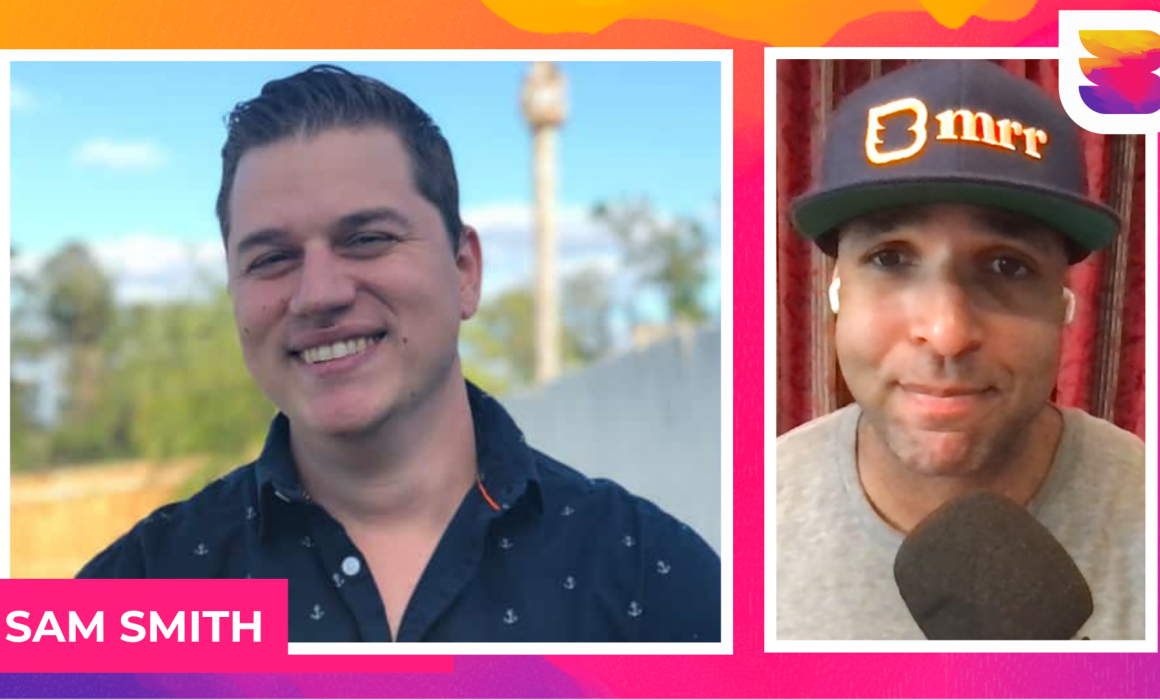
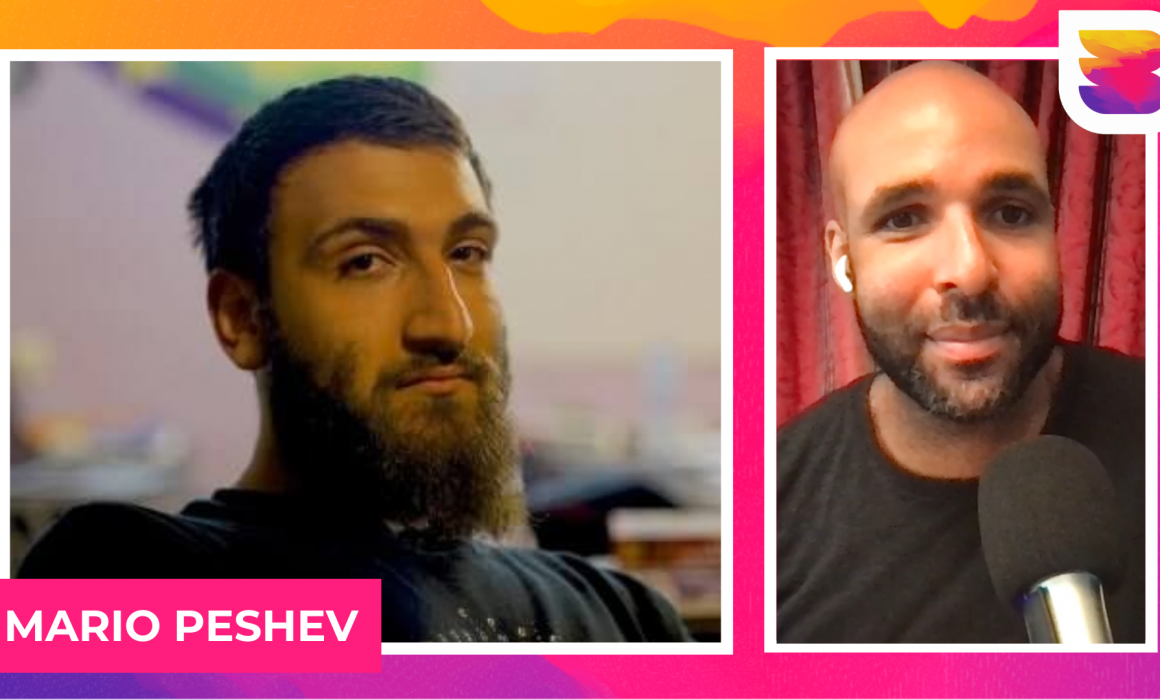
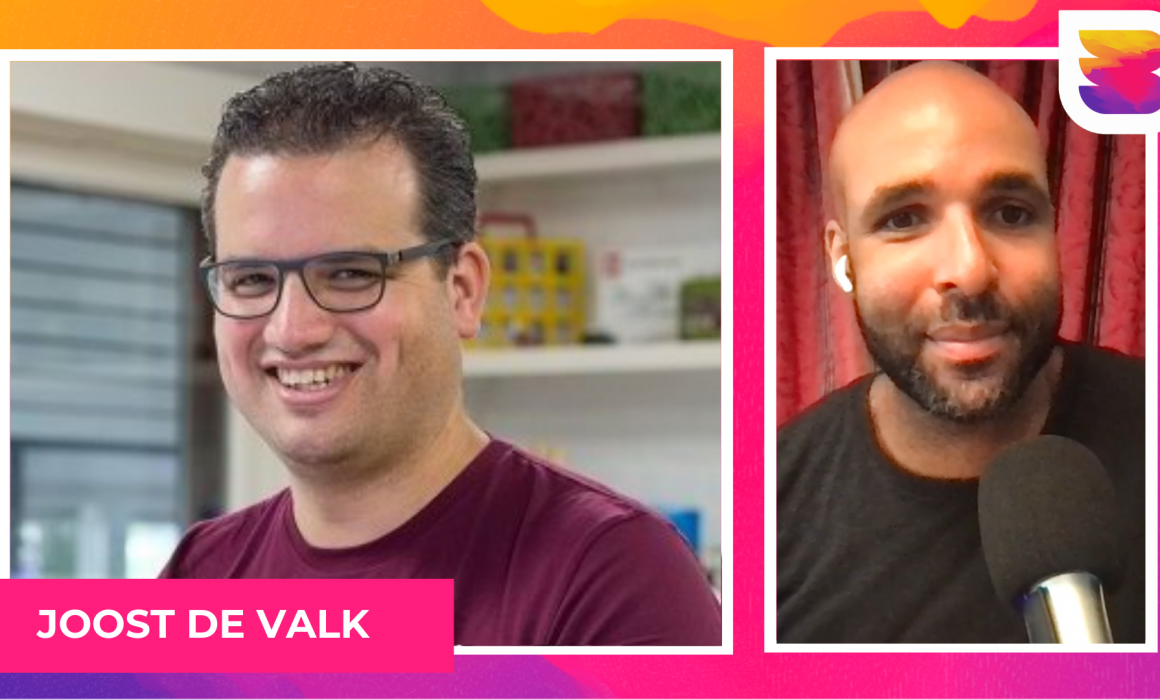
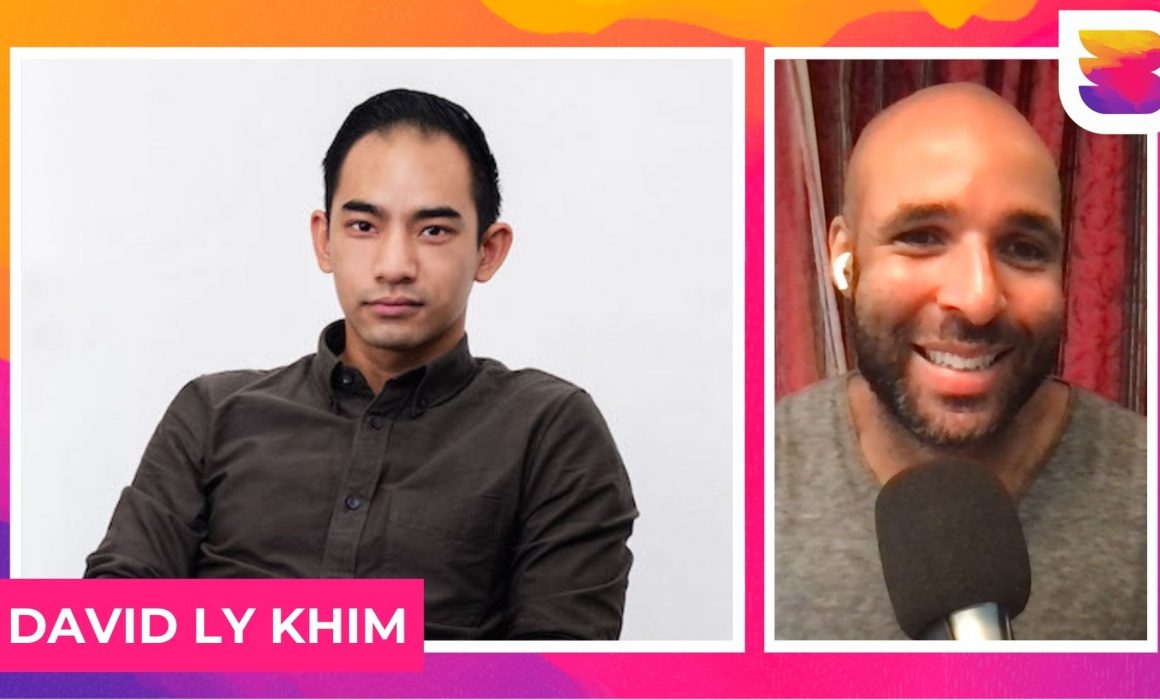
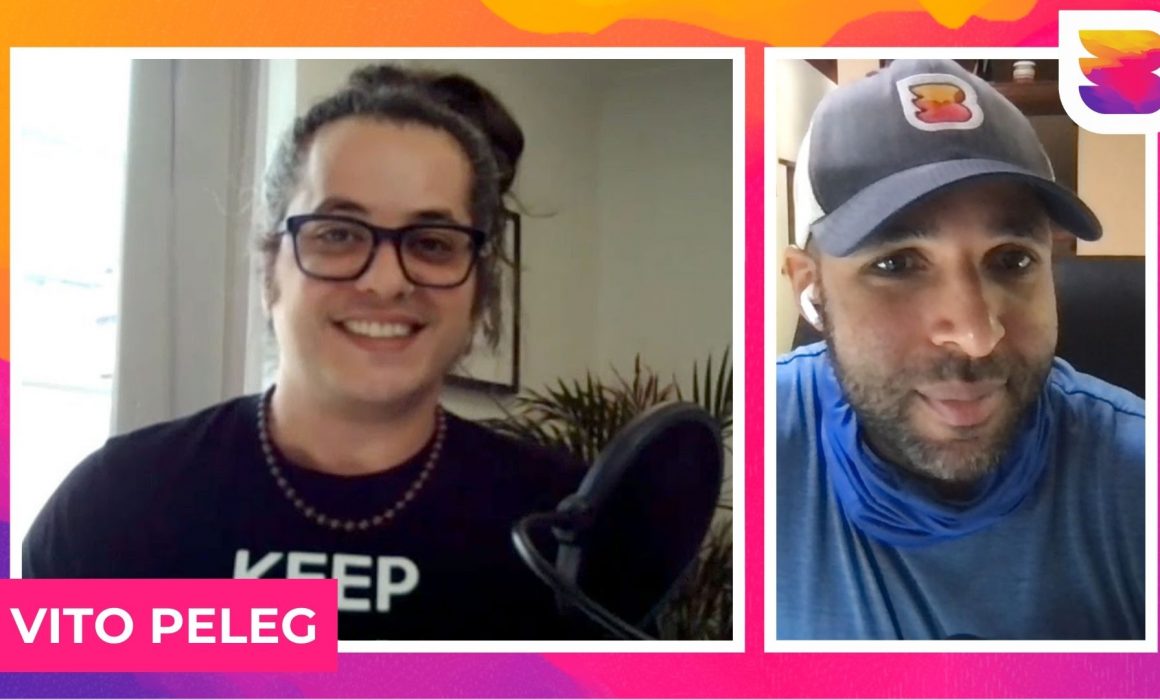







Recent Comments